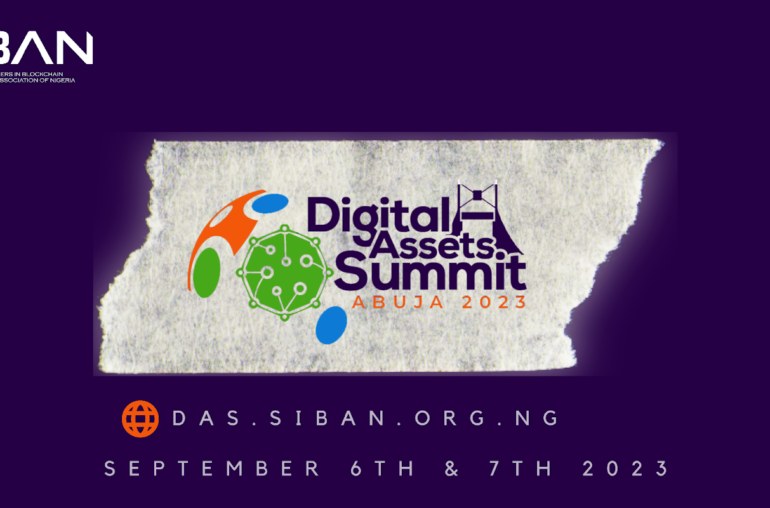In this special report, the Founding Editor of Crypto Asset Buyer (CAB), Senator Ihenyen, went to town in Nigeria’s emerging blockchain industry to find out what industry stakeholders think about the Central Bank of Nigeria’s (CBN) failure to acknowledge the Securities and Exchange Commission’s (SEC) regulatory framework on ICOs in CBN’s Nigeria Payments System Vision 2025 paper.
In the Central Bank of Nigeria’s (CBN) Nigeria Payments System Vision 2025 paper, CBN failed to recognize the Securities and Exchange Commission’s (SEC) regulatory framework for initial coin offerings (ICOs) in Nigeria. In the paper which replaces Nigeria Payments System Vision 2020, CBN mentioned that it will continue to keep an eye on ICOs and work with the SEC to jointly develop a regulatory framework for ICOs if Nigeria embraces ICOs as an investment solution:
[CBN] would also continue its watching brief on Initial Coin Offerings (ICOs) as well as work with Security Exchange Commission (SEC) to jointly develop a regulatory framework in the event of adoption of an ICO-based investment solution.
CBN, Nigeria Payments System Vision 2025

Two things are obvious from CBN’s statement above. First, the CBN is unaware of, neglects to acknowledge, or fails to recognize that the SEC already developed and introduced a regulatory framework for ICOs in Nigeria. This framework is contained in the New Rules on Issuance, Offering and Custody of Digital Assets issued by the SEC in May 2022. Second, the CBN appears to assume that it is also within its regulatory purview to regulate ICOs. This assumption flies in the face of the provisions of Nigeria’s Investments and Securities Act 2007 (ISA 2007) which makes regulation of such investments the statutory duty of the SEC.
In considering the use of distributed ledger technology for ICOs, CBN itself understands that ICOs are purely investment matters, not payments. CBN defined an ICO as “a mechanism for raising investment that combines elements of crowdfunding and Initial Public Offerings (IPOs)”. In CBN’s words, “a company makes digital tokens available for sale at an initial low price for a period, to raise funds to create an app. Interested parties are able to invest in the company by purchasing the digital tokens during the sale”. It concludes that “[g]iven that the solutions are essentially for fundraising, CBN would have a role in the payment aspect, but SEC would need to provide a regulatory framework since the tokens would be a new asset class”.
Speaking to Crypto Asset Buyer (CAB) on the development Wednesday, some players in Nigeria’s emerging blockchain industry are not very happy with the situation. They generally believe that CBN is encroaching on SEC’s statutory authority, and consequently weakening it.
Chimezie Chuta, Founder of Blockchain Nigeria User Group (BNUG) and Vice Chairman of Blockchain Industry Coordinating Committee of Nigeria (BICCoN) reacted as follows:
This is quite disappointing but yet predictable as the CBN has continued to see itself as the ‘Lord of the Rings of Nigeria capital market. Why don’t they allow SEC Nigeria to carry out its statutory functions as the regulator of the capital market where the issue of ICO falls? Oh, I know why. The current SEC Nigeria DG was a director from the CBN! Boom! SEC Nigeria might have even become an extension of the CBN …. who knows. The CBN has always been part of all the inter-agency regulatory framework drafting committees in Nigeria, so it will be interesting to see them engage in another wild goose chase while Rome burns. Recall also the efforts of the [Nigerian Financial Intelligence Unit] in the last few years. For me, it’s all talk with zero action. As long as the Nigeria Blockchain & Crypto space remains unregulated, and policy and regulatory agencies keep foot-dragging, the country will keep losing huge revenues and innovators will remain disorientated hence slowing adoption down significantly.
Chuta’s take above, especially on the country losing revenue and innovators is right, on the money. In fact, the Nigerian government through the Ministry of Finance recently announced its plans to introduce capital gains tax on digital assets in the country. Similar to Chuta’s thoughts on the economic potential of embracing ICOs, the CBN itself mentioned in its paper that “[i]f implemented properly and supported with the right rules and regulations, ICOs could be turned into Financial Instruments and Investment Options, creating a new way to attract Foreign Direct Investment (FDI) and raise capital”. But is CBN giving the SEC the support it needs for Nigeria to achieve this?
Adedeji Owonibi, Senior Partner of A&D Forensics and COO of Convexity also had this to say:
Nigeria is notorious for institutional rivalry, else why wouldn’t the CBN promote and support the already issued SEC ICO regulatory framework. It is possible that there are aspects the financial regulator believes it should have given some inputs ab initio. As players, we are keeping watch and following events as regulations are obviously highly needed to engender a transparent crypto ecosystem.
In the same Nigeria Payments System Vision 2025 paper, contrary to the state of ICO regulation in Nigeria, CBN maintained as follows:
“As ICOs are unregulated, there have been numerous examples where ICO issuers have absconded with the funds, or failed to deliver on their promises, causing investors to lose their investments. There is little appetite to adopt the current round of ICOs given their lack of regulation. However, given the role of ICOs as an asset class, there is potential for adopting the technology of ICOs as a new approach to fund- raising for capital projects (in the wholesale market) or peer-to-peer lending or crowd funding (for the retail market).
At best, CBN’s position above must be a result of an omission of fact, or at worst, a question mark on the authority of the SEC. Since May 2022, Nigeria has already adopted ICOs as an investment solution in its capital market. Therefore, one would expect that at this stage CBN should be providing necessary support to the SEC towards ensuring that entities that promote investments through ICOs in Nigeria do so without undue restrictions, such as access to banking and financial services for example. Since 5 February 2021, the CBN has restricted persons and entities who deal in cryptocurrency from access to Nigeria’s banking and financial system. This is regardless of the Money Laundering Act 2022 which recognizes virtual assets in Nigeria and requires virtual asset service providers (VASPs) to comply with the country’s money-laundering regulations. The SEC has also introduced a money-laundering regulation that includes VASPs.

Strangely, even after the SEC consequently issued the New Rules on Issuance, Offering and Custody of Digital Asset and the President signed the new Money Laundering Act 2022 into law, the CBN has not (or is yet) to review its cryptocurrency directive in Nigeria’s banking and financial system. Not surprisingly, this situation has left both local and foreign players confused as the clarity and certainty the SEC sought to bring into the country’s digital assets landscape appears to have been defeated by a sister but obviously more powerful agency.
On his part, Arinze John Okafor, Vice President (Policy and Regulations) of the Stakeholders in Blockchain Association of Nigeria (SiBAN), is similarly uncomfortable with CBN’s approach to the matter. Mr. Okafor believes that SEC’s primary function is to regulate investment and securities business in Nigeria for the purpose of protecting investors, maintaining fair, orderly, and efficient markets, and overseeing the capital market generally. Therefore, Mr. Okafor described CBN’s steps as encroaching and unfortunate:
It’s quite unfortunate that we have seen the CBN on a number of occasions trying to usurp the powers of the SEC in carrying out the statutory duty of regulating the capital market in Nigeria. Clearly, the CBN did not acknowledge that SEC has, in May 2022, already issued a regulatory framework for ICOs in Nigeria which VASPs in the industry are already studying for adoption. Since we all know that the regulation of the capital market falls within the purview of the SEC, one would have expected that the CBN would work in sync with the SEC regulations or allow the SEC to do its job as empowered by law.
Stephen Azubuike, Partner at Infusion Lawyers, observed as follows:
“The inability of the CBN to acknowledge SEC’s framework for ICOs appears to show the lack of the much-needed cooperation between the CBN and SEC. We will continue to advocate that these two agencies of the Government must actively recognize the importance of working closely together given their independent roles in Nigeria’s financial economy.”
The National Assembly may not be unaware of the [seeming] lack of collaboration between the CBN and SEC in Nigeria’s crypto industry. In December last year, the Punch reported that the Chairman of the House of Representatives Committee on Capital Market and Institutions, Babangida Ibrahim, disclosed that the green chamber would soon pass a law that will allow digital currencies in Nigeria. According to the report, the legislature plans to amend the Investments and Securities Act 2007 and when passed and signed into law, the SEC would be statutorily empowered “to recognize cryptocurrency and other digital funds as capital for investment” under the amended law. Also, the proposed law will define the regulatory roles of the CBN and SEC regarding digital currency.
If the idea of a vision is to see, strategize, and prepare for the future and not be held back by the past, regulators in Nigeria’s emerging crypto industry need to do better in Nigeria’s best interest.
Disclosure: Senator Ihenyen, Founding Editor of Crypto Asset Buyer (CAB), is Lead Partner at Infusion Lawyers.
Discover more from Crypto Asset Buyer
Subscribe to get the latest posts sent to your email.





